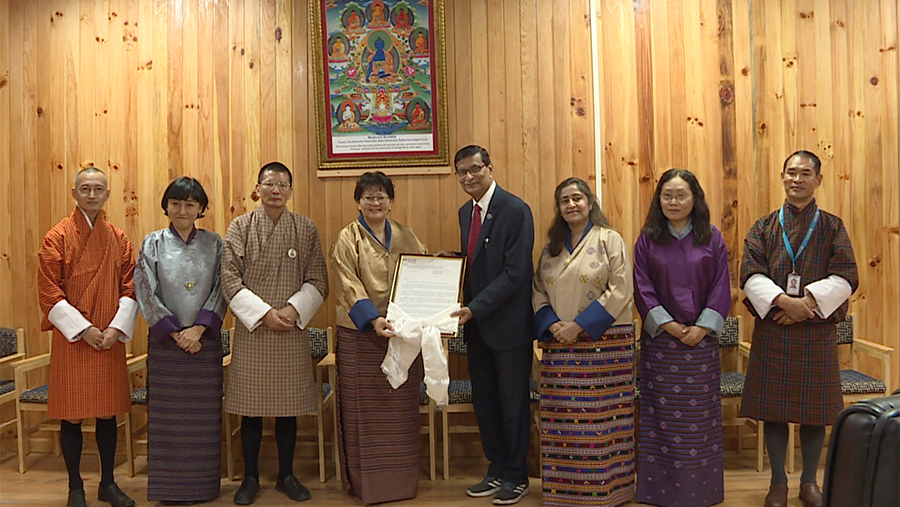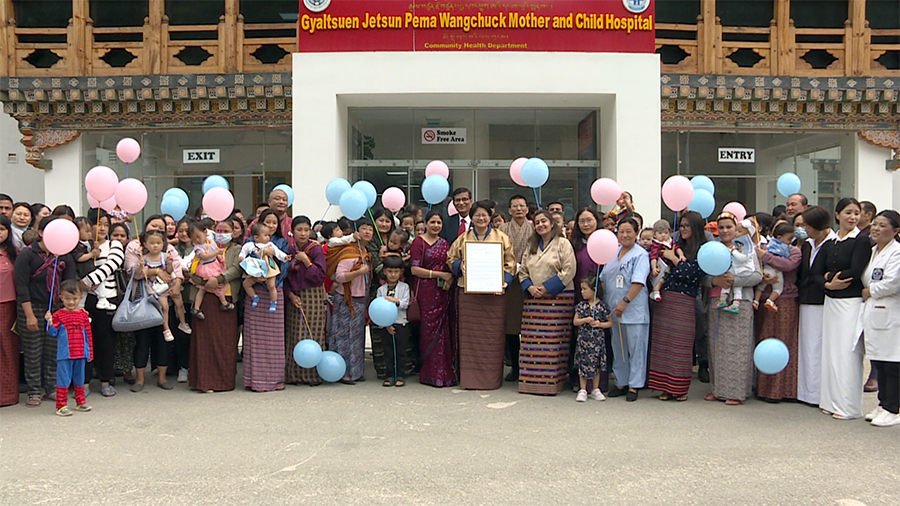
Bhutan has been officially recognised by the World Health Organisation’s South-East Asia region for successfully eliminating rubella. The announcement comes after the country interrupted transmission of the rubella virus for more than 36 months, thus qualifying for the elimination status. Rubella is a highly contagious disease that causes serious illness and irreversible birth defects in newborns of women infected during pregnancy but is preventable through vaccination.
The elimination announcement follows recommendations made by the Regional Verification Commission for Measles and Rubella Elimination which convened in Bangkok last month.
 To mark the occasion, the Health Minister along with mothers and children gathered at the Gyaltsuen Jetsun Pema Wangchuck Mother and Child Hospital.
To mark the occasion, the Health Minister along with mothers and children gathered at the Gyaltsuen Jetsun Pema Wangchuck Mother and Child Hospital.
“So, what does this elimination mean to a mother, it means that with the elimination of the disease, there are no risks of a child being born with a congenital disability. To a child, it signifies a healthy and happy childhood. To the Health Ministry, it signifies if we work together, we can achieve ambitious targets and we can put Bhutan on the map for achieving a global health agenda,” said Health Minister Dechen Wangmo.
To maintain the elimination status, WHO recommends continuing with focused efforts to implement a post-elimination sustainability plan.
“It is important that children between the age of nine months and one year get the MMR or measles-mumps-rubella vaccination. Similarly, they should also get the booster dose or the second dose after reaching the age of two,” said Tashi Dawa, the health ministry’s programme officer.
Those infected with rubella have a mild illness, with symptoms that can include a fever, sore throat, and a rash that starts on the face and spreads to the rest of the body. It can cause miscarriage or serious birth defects in a developing baby if a woman is infected while she is pregnant.
After a rubella outbreak in the country in 2003, rubella vaccination was introduced in 2006 following consultations with regional and national experts.
Bhutan has achieved national immunisation coverage of more than 95 per cent with a second dose of the vaccine.
The South-East Asia region has set a target of achieving more than 95 per cent coverage with two doses of measles-rubella-containing vaccine in all districts of all countries in the region.
Tshering Deki
Edited by Sonam Pem







